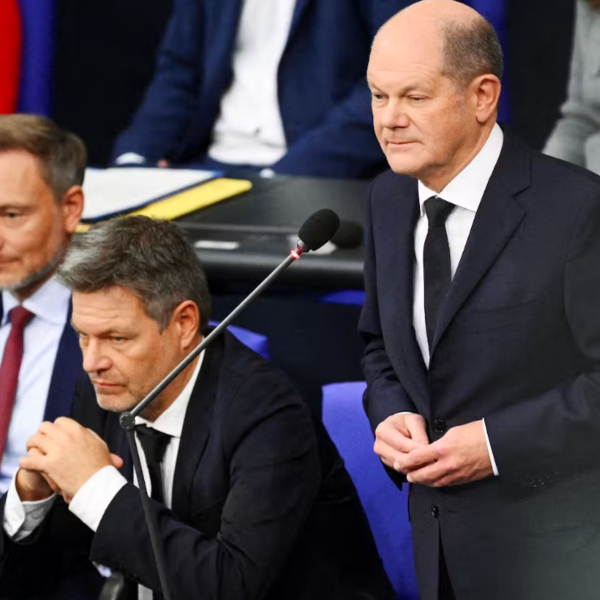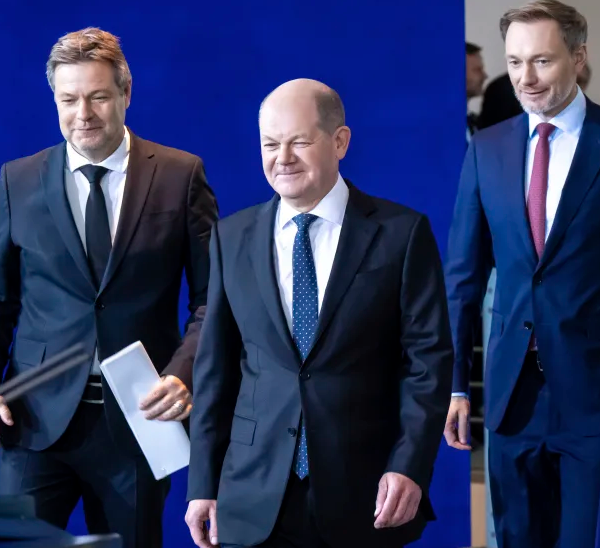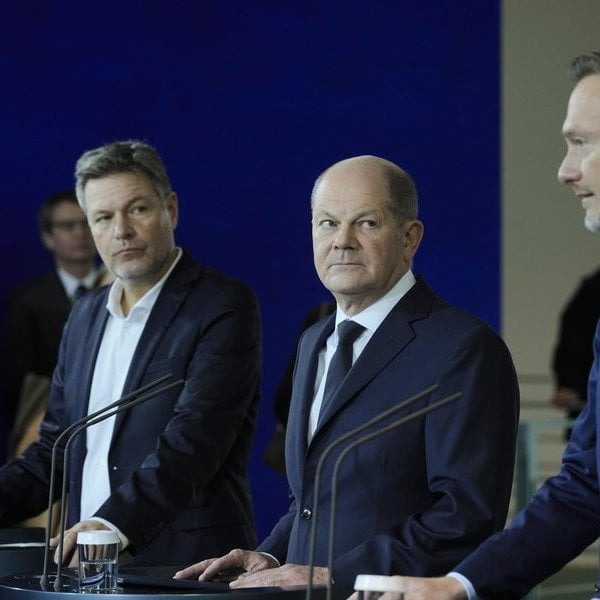Europe's largest economy is facing a prolonged financial impasse following a shocking ruling by the Federal Constitutional Court – one of Germany's highest courts – in mid-November.
The ruling raises questions about “special funds” outside the regular federal budget and creates a financial “hole” worth about 17 billion euros that German Chancellor Olaf Scholz’s ruling coalition will struggle to “patch” if it wants to pass the 2024 budget.
On December 7, Katja Mast, a senior lawmaker from Mr Scholz's Social Democratic Party (SPD), admitted that the ruling "traffic light" coalition would not be able to "finalize" the 2024 budget before the end of the year.
Even if the three-party coalition – comprising the SPD, Greens and Free Democrats (FDP) – reaches a consensus on the budget in the coming days, Ms Mast said there would not be enough time for them to get the necessary approval from the German parliament (Bundestag) before the end of 2023.
Pressure is mounting on Chancellor Scholz, Economy Minister Robert Habeck and Finance Minister Christian Lindner – each representing a party in the governing coalition with often conflicting priorities – to quickly agree on a budget deal that can be approved by the German parliament in early January.
The fact that the German government has so far been unable to reach a budget agreement has further highlighted the deep rifts within the ruling coalition.

Street scene in Frankfurt am Main - the financial capital of Europe, western Germany, November 20, 2023. Photo: Euronews
The Greens and the SPD want to maintain subsidies, such as those to accelerate the clean energy transition and promote the construction of microchip and battery factories in Germany.
Meanwhile, to fill the 17 billion euro gap, the FDP led by Mr. Lindner wants to cut spending and reduce subsidies. Mr. Lindner does not believe that Germany can ensure competitiveness, prosperity and social security through such subsidies.
The trio of Mr Scholz, Mr Habeck and Mr Lindner agreed to resume budget talks after the finance minister returned from a meeting with his EU counterparts in Brussels.
With the target of having the Cabinet pass a new budget and send it to Parliament for approval by the end of December now “out of reach”, Mr Lindner will have to draw up an interim plan to get the government running in the early months of 2024.
“I have noted that the coalition partners have a very ambitious timetable but it would not be a crisis if we did not have a budget law until next year,” Lindner told reporters in the Belgian capital on December 7.
“The state is fully operational, no public authority will be closed, no salaries will not be paid, and no one will not receive the financial support they are expecting,” Lindner added.
Asked whether investors should worry about budget uncertainty in Europe’s largest economy, Lindner stressed that Germany remains a “stable anchor” with a falling debt-to-GDP ratio and a narrowing annual deficit.
“The best place to invest right now is Germany,” Minister Lindner affirmed.
Mr Scholz, Mr Habeck and Mr Lindner are expected to meet on the evening of 10 December to finalise the agreement on the 2024 budget, after which they could present it to the media on the morning of 11 December .
Minh Duc (According to Politico EU, Bloomberg)
Source


![[Photo] Prime Minister Pham Minh Chinh chairs meeting of Steering Committee for key projects and railway projects](https://vstatic.vietnam.vn/vietnam/resource/IMAGE/2025/4/26/b9534596258a40a29ebd8edcdbd666ab)


![[Photo] April 30, 1975 - Steel imprint engraved in history](https://vstatic.vietnam.vn/vietnam/resource/IMAGE/2025/4/26/b5a0d7f4f8e04339923978dfe92c78ef)
![[Photo] Ho Chi Minh City people's affection for the parade](https://vstatic.vietnam.vn/vietnam/resource/IMAGE/2025/4/26/7fcb6bcae98e46fba1ca063dc570e7e5)
![[Photo] Readers' joy when receiving the supplement commemorating the 50th anniversary of the liberation of the South and national reunification of Nhan Dan Newspaper](https://vstatic.vietnam.vn/vietnam/resource/IMAGE/2025/4/26/283e56713da94988bf608393c0165723)







![[Video] Watch helicopters raise the flag, fighter jets perform aerobatics in the center of Ho Chi Minh City](https://vstatic.vietnam.vn/vietnam/resource/IMAGE/2025/4/25/555e3f94908e4feb81d8ea69f51b0058)
















































































Comment (0)